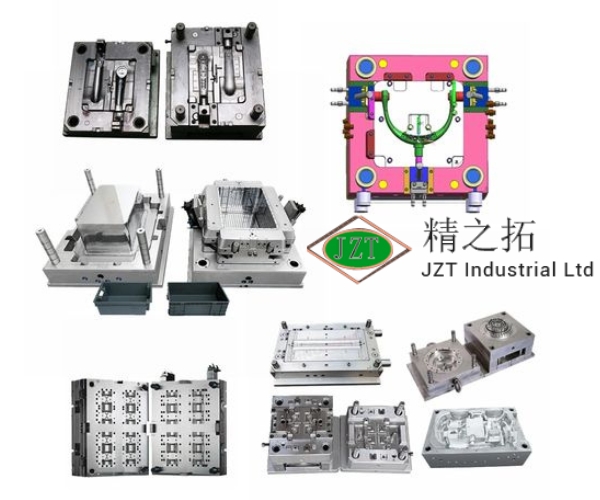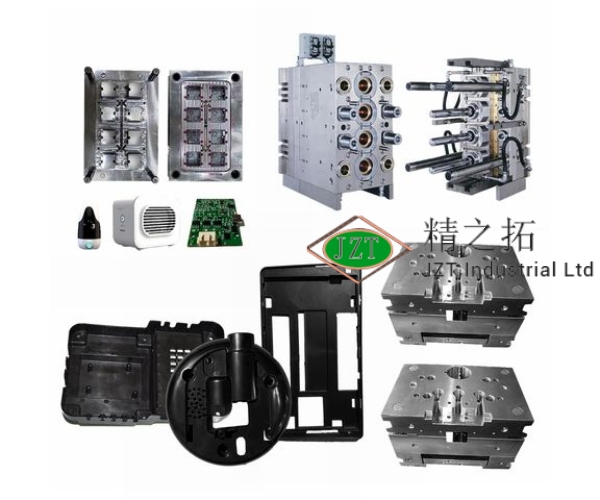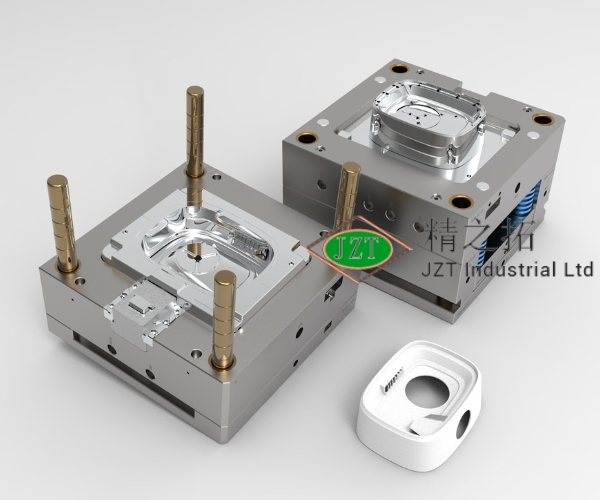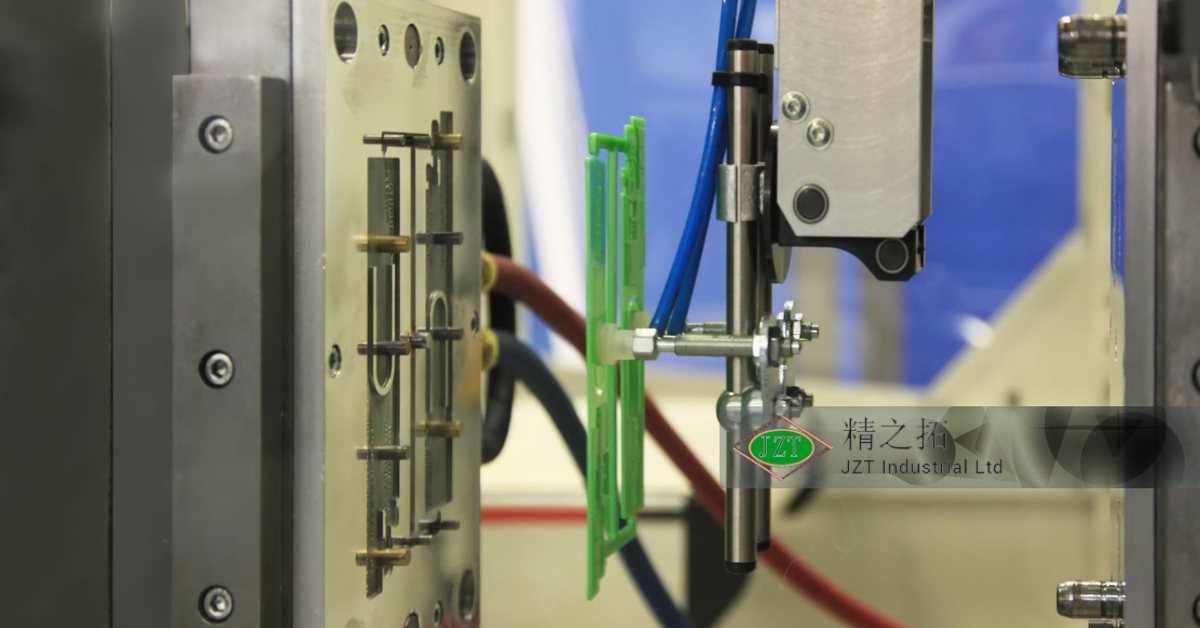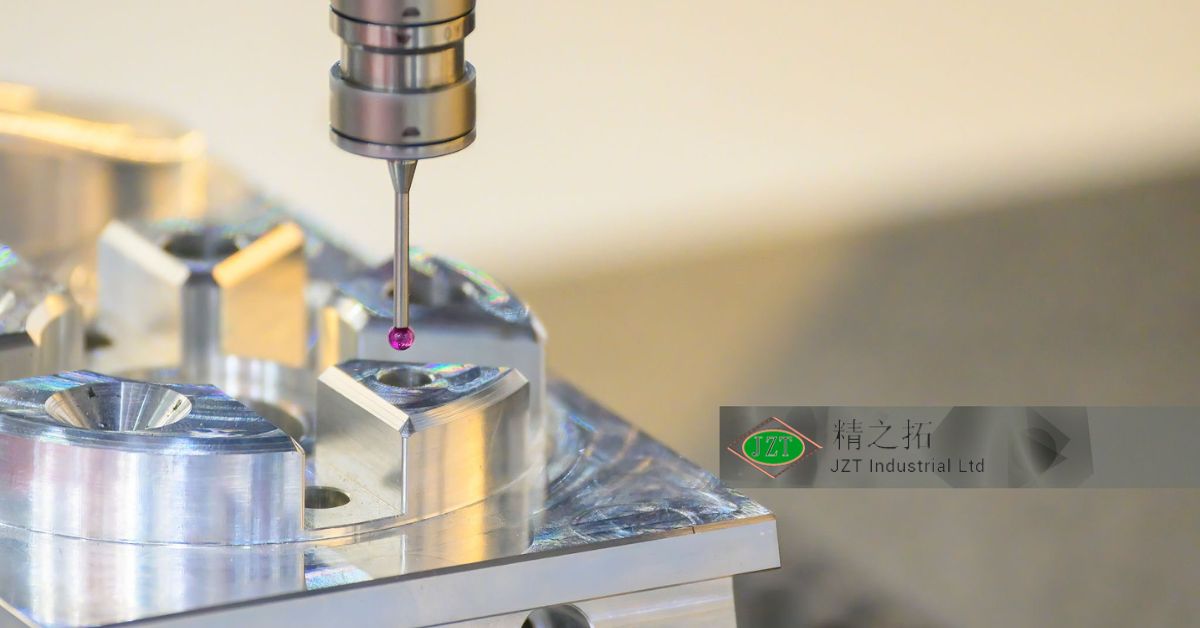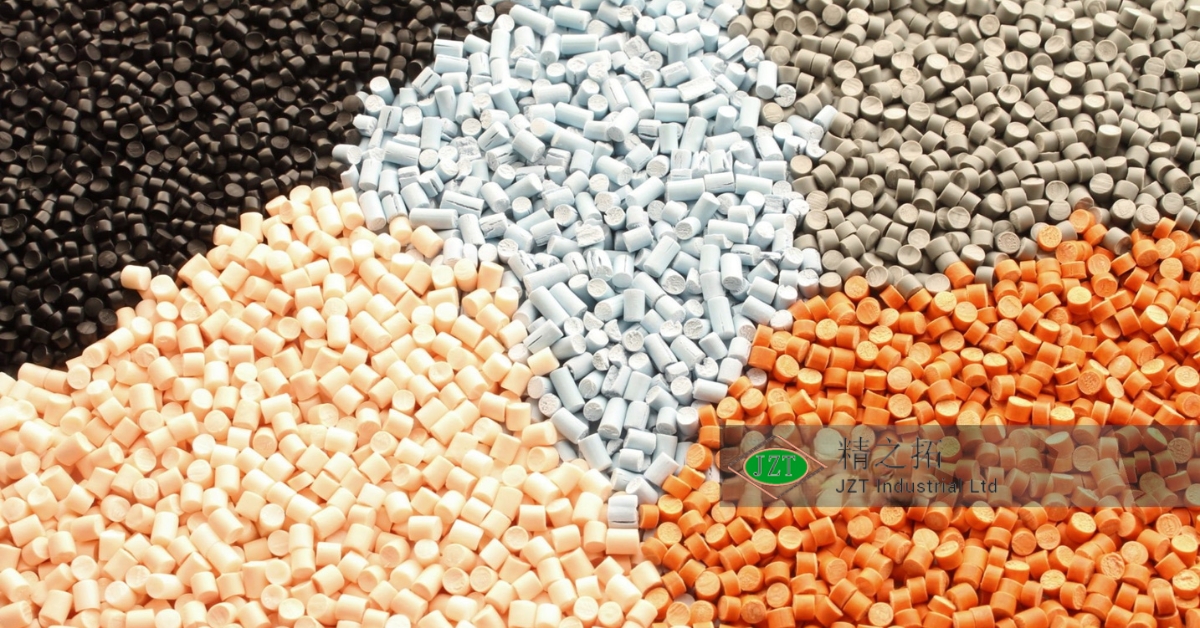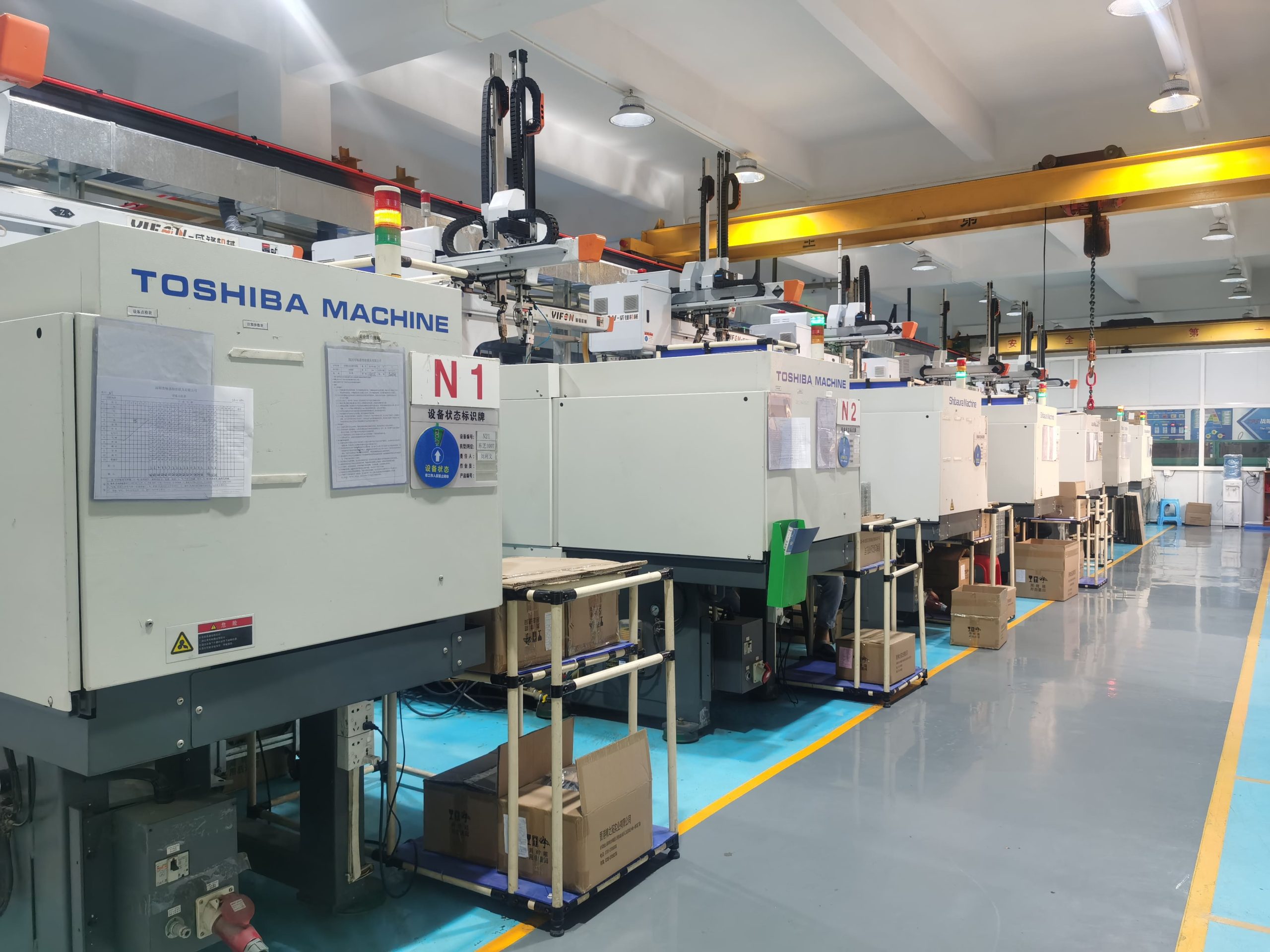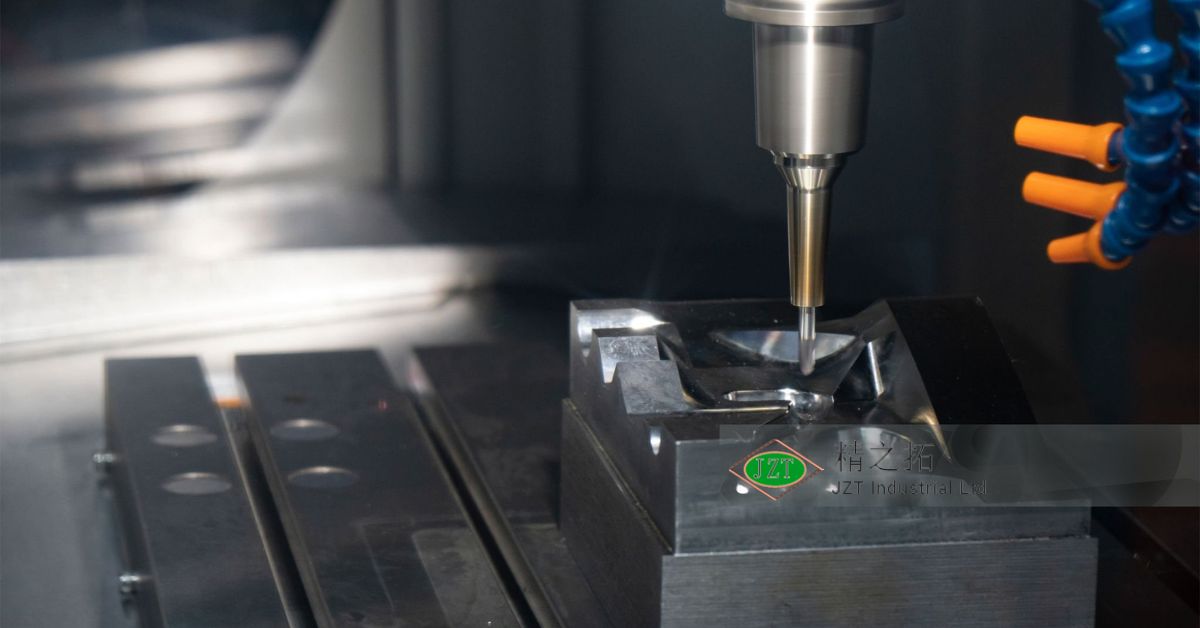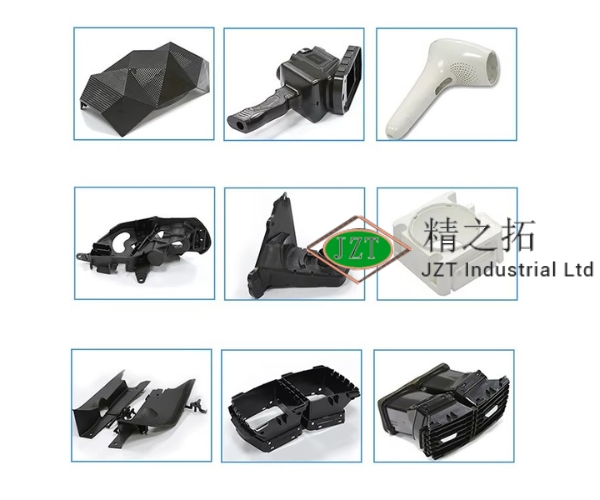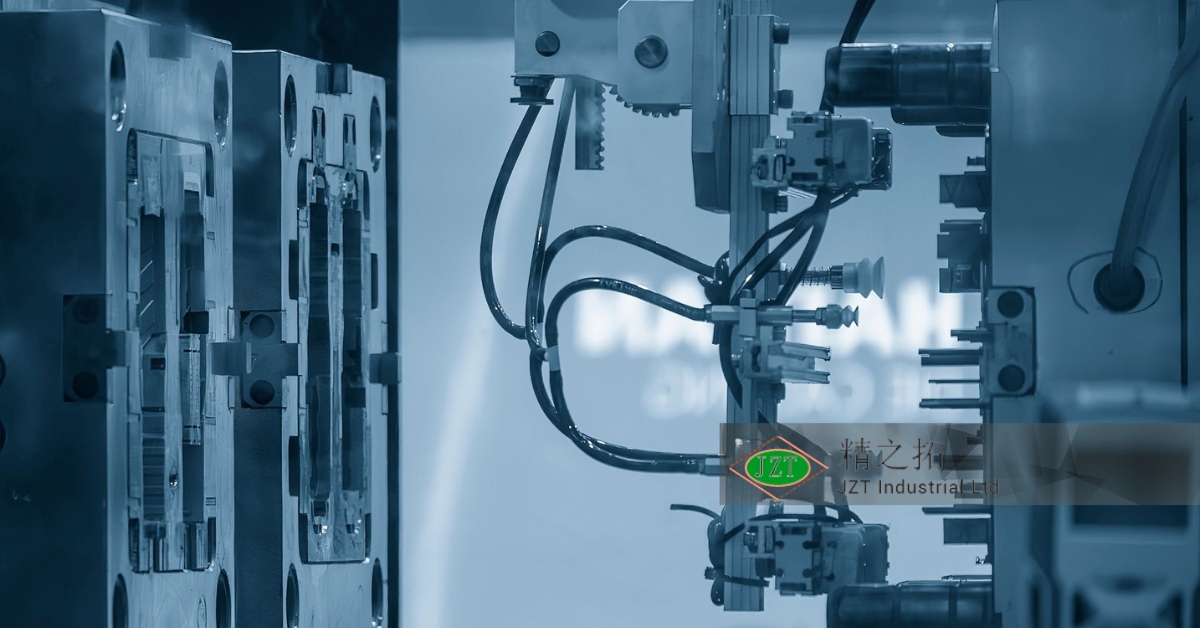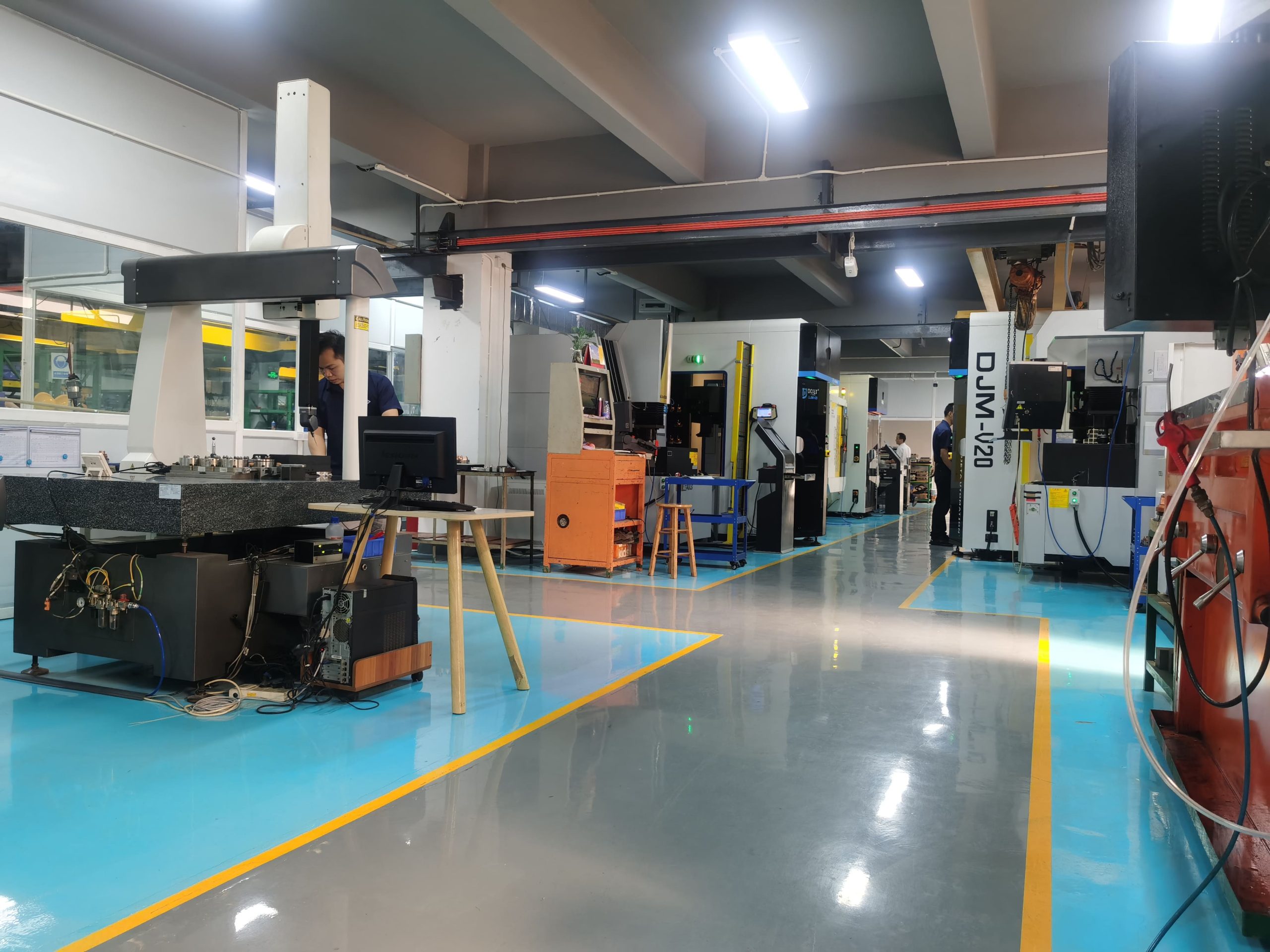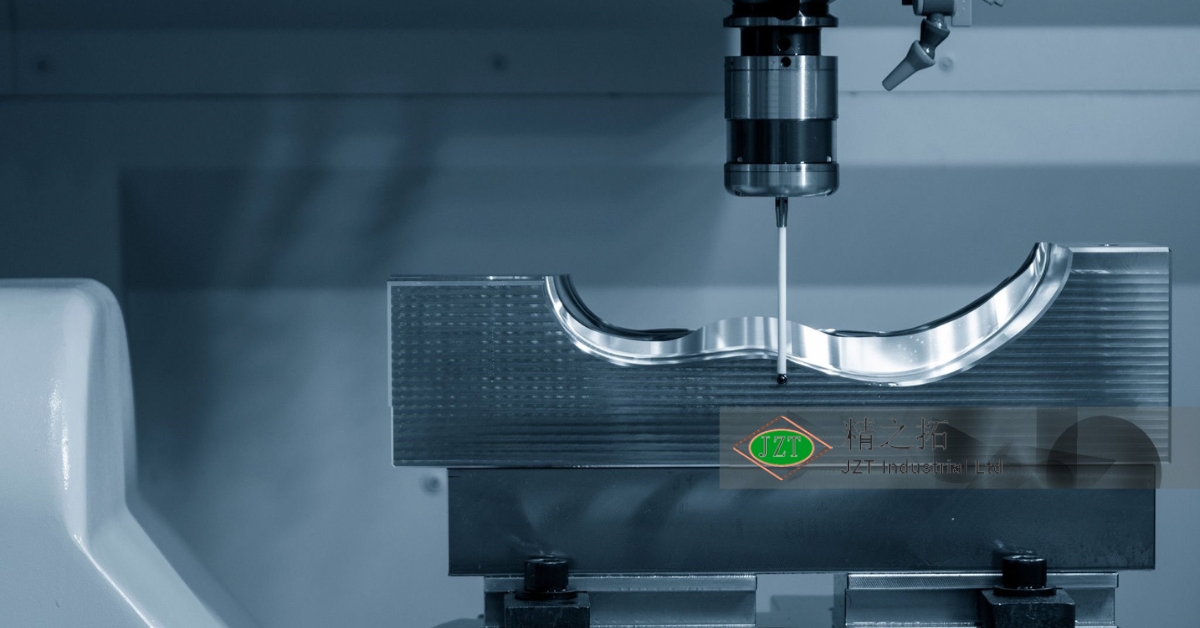Introduction
In the fast-paced world of automotive manufacturing, precision, durability, and efficiency are not just desirable—they are essential. The automotive industry is one of the largest consumers of plastic injection molded parts, relying on these components for everything from dashboards and bumpers to intricate interior trims and engine components. As vehicles become more complex, with increasing demands for lightweight materials and stringent safety standards, the need for high-quality, reliable plastic parts molding has never been more critical.
When it comes to sourcing these crucial components, choosing the right plastic parts manufacturer can significantly impact the quality, cost, and delivery of the final product. This decision is not to be taken lightly, as it involves balancing several key factors such as technological capabilities, quality assurance, lead times, and, of course, cost efficiency. With numerous automotive injection molding companies vying for business, how do you identify the best partner for your needs?
In this comprehensive guide, we will explore the essential criteria for selecting top-tier automotive plastic injection molding companies. We’ll delve into the critical aspects of the injection molding process, highlight what sets industry leaders apart, and provide detailed profiles of some of the most reputable companies in the field, with a special focus on JZT, a leading name in the industry. Whether you’re a procurement officer, a product engineer, or a company owner in the automotive sector, this guide aims to equip you with the knowledge to make an informed decision.
Understanding Automotive Plastic Injection Molding
What is Plastic Injection Molding?
Plastic injection molding is a manufacturing process where plastic material is heated until it becomes molten, then injected into a mold cavity where it cools and solidifies into the desired shape. This process is favored for producing complex and precise parts with high repeatability and efficiency. In the automotive industry, injection molding is particularly valued for its ability to create durable, lightweight components that can withstand the rigors of everyday use while meeting strict safety and performance standards.
The process begins with the selection of suitable plastic resins, which are chosen based on the specific requirements of the automotive part being manufactured. These resins are then fed into an injection molding machine where they are heated to a molten state. The molten plastic is injected into a metal mold at high pressure, ensuring that the material fills every cavity and takes on the exact shape of the mold. Once the plastic has cooled and solidified, the mold is opened, and the part is ejected. This cycle can be repeated thousands or even millions of times, making injection molding an ideal process for mass production.
Why is Precision Crucial in Automotive Parts?
Precision in automotive parts is not just about fitting components together—it’s about ensuring the safety, functionality, and longevity of a vehicle. A slight deviation in the dimensions of a part can lead to significant issues, such as poor fit, increased wear and tear, and even failure of critical systems. For example, a poorly molded engine component could lead to leaks, reduced efficiency, or catastrophic engine failure. Similarly, inaccuracies in safety-related parts like airbags or seatbelt mechanisms could result in life-threatening situations.
Moreover, with the automotive industry’s shift towards electric vehicles (EVs) and the integration of more advanced technologies, the demand for precise, high-performance plastic parts has increased. These parts must meet stringent quality standards and often need to be produced with tight tolerances to ensure that they function correctly within the complex systems of modern vehicles. This is why the choice of an automotive plastic injection molding partner is so critical—only companies with advanced capabilities and a deep understanding of the industry’s requirements can consistently deliver the level of precision needed.
Types of Automotive Parts Produced by Plastic Injection Molding
The versatility of plastic injection molding makes it an indispensable process in the automotive industry. A wide range of parts can be produced using this method, each serving a specific function and meeting particular performance criteria. Here are some common examples:
- Interior Trim: Components such as dashboard panels, door panels, consoles, and glove compartments are often produced through injection molding. These parts not only need to fit perfectly within the vehicle’s interior but also meet aesthetic and tactile standards.
- Exterior Components: Bumpers, grilles, and mirror housings are examples of exterior parts that require durability and resistance to environmental factors like UV radiation, temperature extremes, and moisture. Injection molding allows for the production of these parts with high impact resistance and long-lasting color stability.
- Engine Components: Various engine components, such as air intake manifolds and valve covers, are made using injection molding due to the process’s ability to produce complex shapes that are lightweight yet strong enough to withstand the harsh conditions inside an engine bay.
- Safety Components: Parts such as seatbelt mechanisms, airbag housings, and child safety seat components are often produced using injection molding. These parts must meet the highest safety standards, as any failure could result in serious injury.
- Electrical Components: With the rise of EVs, there is an increasing demand for precision-molded plastic parts that can house and protect electrical components. These parts need to provide excellent insulation, resist heat, and be robust enough to protect delicate electronics.
- Lightweight Structural Parts: To improve fuel efficiency and reduce emissions, automotive manufacturers are increasingly turning to lightweight materials. Plastic injection molding allows for the production of lightweight structural components that maintain the necessary strength and durability.
Key Factors to Consider When Choosing an Automotive Plastic Injection Molding Company
Choosing the right automotive plastic injection molding company is a critical decision that can have far-reaching implications for the quality, cost, and reliability of your products. The following are the key factors you should consider when selecting a partner for your plastic parts molding needs:
Quality Assurance and Certifications
Quality assurance is the backbone of any manufacturing process, especially in the automotive industry, where the smallest defect can lead to significant safety concerns or costly recalls. When evaluating potential plastic parts manufacturers, it’s essential to assess their quality control processes and certifications.
ISO Certifications: Look for companies that hold ISO 9001 or IATF 16949 certifications. These certifications indicate that the company adheres to international standards for quality management systems and is committed to continuous improvement. IATF 16949 is particularly relevant for the automotive industry, as it focuses on preventing defects and reducing variation and waste in the supply chain.
In-House Quality Control: A company’s internal quality control processes are just as important as their certifications. Ask potential partners about their quality control procedures, including how they inspect parts at various stages of production, the frequency of inspections, and the tools and technologies they use (e.g., Coordinate Measuring Machines or CMMs for precision measurement). Companies that invest in advanced quality control technologies are more likely to catch defects early and ensure that every part meets your specifications.
Traceability: The ability to trace each part back to its raw material and production batch is crucial in the automotive industry, where recalls can be costly and damaging to a brand’s reputation. Ensure that the manufacturer has robust traceability systems in place, so you can quickly identify and address any issues that arise.
Technological Capabilities
The automotive industry is evolving rapidly, with increasing demand for more complex and precise parts. As a result, the technological capabilities of your plastic injection molding partner are critical. Here are some aspects to consider:
Advanced Machinery: Look for companies that use state-of-the-art injection molding machines, such as those from renowned manufacturers like Fanuc or Engel. These machines offer greater precision, faster cycle times, and better energy efficiency, all of which contribute to higher-quality parts at lower costs.
Automation and Robotics: Automation is key to maintaining consistent quality and reducing lead times. Companies that use automated systems, such as robotic arms for part handling and automated inspection systems, can produce parts with less human error and more consistent quality. Automation also allows for greater scalability, as the production process can be ramped up quickly to meet increased demand.
Tooling and Mold Design: The design and quality of the mold are critical to the success of the injection molding process. A well-designed mold will produce parts that meet your specifications with minimal post-processing. Ask potential partners about their mold design capabilities, including whether they use advanced software for mold flow analysis and simulation. Companies that invest in high-quality tooling and mold design are more likely to deliver parts that meet your expectations.
Material Expertise: Different automotive parts require different types of plastic materials, each with its own set of properties (e.g., strength, heat resistance, UV resistance). A good injection molding company will have expertise in a wide range of materials and will be able to advise you on the best material for your specific application. They should also have experience with the latest high-performance materials, such as engineering thermoplastics or composite materials.
Experience and Expertise
Experience matters in the automotive plastic injection molding industry. Companies with a long track record are more likely to have encountered and solved the challenges that can arise during production. Here’s what to look for:
Industry Experience: How long has the company been in business? Do they have experience working with clients in the automotive industry? A company with decades of experience in automotive plastic injection molding will have a deep understanding of the industry’s specific requirements, including regulatory standards, safety considerations, and the need for consistent quality.
Case Studies and Testimonials: Look for evidence of the company’s success in similar projects. Case studies that demonstrate the company’s ability to deliver complex parts on time and within budget can provide valuable insights into their capabilities. Testimonials from other clients in the automotive industry can also give you confidence in the company’s ability to meet your needs.
Technical Expertise: The best automotive plastic injection molding companies employ highly skilled engineers and technicians who are experts in mold design, process optimization, and material science. These professionals can work with you to refine your designs, select the best materials, and optimize the manufacturing process to achieve the best possible results.
Capacity and Scalability
When selecting a plastic injection molding partner, it’s important to ensure that they have the capacity to meet your production needs, both now and in the future. Here’s what to consider:
Production Capacity: Assess the company’s current production capacity. How many machines do they have? What are the tonnages of their injection molding machines? Can they handle the volume of parts you need, and can they scale up production if your demand increases? A company with a large number of machines, including high-tonnage presses, will be better equipped to handle large production runs.
Scalability: In addition to current capacity, consider the company’s ability to scale up production if needed. This could involve adding shifts, bringing in additional machines, or expanding their facilities. A company with a flexible and scalable production setup will be able to respond quickly to changes in demand, ensuring that you always have the parts you need, when you need them.
Lead Times and Delivery: Lead time is a critical factor in automotive manufacturing, where delays can have significant downstream effects. When evaluating potential partners, ask about their lead times for various types of parts. How quickly can they produce a new part once the design is finalized? What are their average lead times for reorders? Companies that have streamlined production processes and use automation are more likely to offer shorter lead times and more reliable delivery schedules.
Cost Efficiency
While quality and reliability are paramount, cost is always a consideration in manufacturing. The goal is to find a partner who can deliver high-quality parts at a competitive price. Here are some aspects to consider:
Transparent Pricing: Look for companies that provide clear, detailed pricing quotes that break down the costs of materials, labor, tooling, and overhead. This transparency allows you to understand where your money is going and to identify areas where you might be able to reduce costs without sacrificing quality.
Cost-Effective Solutions: The best plastic injection molding companies will work with you to find cost-effective solutions that meet your needs. This could involve optimizing the design of the part to reduce material usage, using more cost-effective materials, or finding ways to streamline the manufacturing process to reduce labor costs.
Value Over Price: It’s important to focus on the overall value a company offers rather than just the price. A lower-cost provider might save you money upfront, but if they can’t deliver consistent quality or meet your deadlines, the long-term costs could be much higher. Conversely, a slightly more expensive company that delivers high-quality parts on time and offers excellent customer service might be a better value in the long run.
Communication and Customer Service
Effective communication is key to a successful partnership. You need a plastic injection molding partner who is responsive, transparent, and easy to work with. Here’s what to look for:
Responsiveness: How quickly does the company respond to inquiries? Are they proactive in keeping you informed about the status of your orders? A responsive partner will ensure that any issues are addressed quickly and that you’re always kept in the loop.
Transparency: Look for a company that is open and honest about their processes, capabilities, and any potential challenges. Transparency builds trust and helps you make informed decisions. It also ensures that there are no surprises down the road.
Customer Service: Evaluate the company’s customer service. Do they go out of their way to accommodate your needs? Are they willing to work with you to resolve any issues that arise? A company that prioritizes customer satisfaction is more likely to be a reliable long-term partner.
JZT Company Overview
Among these industry leaders, JZT stands out as a premier automotive plastic injection molding company. With over 20 years of experience, JZT has built a strong reputation for delivering high-quality parts with precision and reliability. Here’s what sets JZT apart:
Advanced Equipment and Technology
JZT is committed to staying at the forefront of technological advancements in the injection molding industry. The company’s facilities are equipped with state-of-the-art machinery, including EDM spark machines from Sodick and Charmilles GF AgieCharmill, as well as CNC machines from Fanuc. These machines are known for their precision, efficiency, and ability to produce complex parts with tight tolerances.
In addition to advanced machinery, JZT employs automated systems throughout the production process. This includes the use of robotic arms for part handling and automated inspection systems that ensure each part meets the highest standards of quality. This investment in technology not only improves the quality of the parts but also reduces lead times and enhances the company’s ability to scale production as needed.
Comprehensive Quality Control
Quality control is a top priority at JZT. The company’s quality assurance process is designed to catch defects early and ensure that every part meets the customer’s specifications. This process begins with the inspection of raw materials and continues through every stage of production, with multiple checkpoints to verify the quality of the parts.
JZT’s quality control capabilities are further enhanced by the use of advanced measurement technologies, including Coordinate Measuring Machines (CMMs) from Hexagon. These machines provide highly accurate measurements of complex parts, ensuring that they meet the required tolerances.
In addition to in-process inspections, JZT conducts final inspections on all parts before they are shipped to the customer. This comprehensive approach to quality control has earned JZT a reputation for reliability and has helped the company build long-term relationships with clients in the automotive industry.
Customer-Centric Approach
At JZT, customer satisfaction is paramount. The company prides itself on its responsiveness and flexibility, working closely with clients to understand their needs and provide tailored solutions. Whether it’s a last-minute design change or an urgent production request, JZT’s team is committed to meeting the customer’s requirements and delivering parts on time.
JZT’s customer-centric approach is evident in the company’s track record of success. The company has worked with a wide range of clients in the automotive industry, from small suppliers to major OEMs, and has consistently delivered parts that meet or exceed expectations. This focus on customer satisfaction has resulted in a high level of repeat business and numerous positive testimonials from satisfied clients.
Global Reach and Export Capabilities
JZT’s reach extends far beyond its home base in China. The company exports its products to clients in North America, Europe, and Asia, including major markets such as the USA, Canada, Germany, and Japan. This global presence allows JZT to serve a diverse range of clients and adapt to the specific requirements of different markets.
JZT’s export capabilities are supported by a robust logistics network that ensures timely delivery of parts to clients around the world. The company works closely with logistics partners to manage the complexities of international shipping, including customs clearance and regulatory compliance. This focus on reliable delivery has made JZT a trusted partner for automotive companies with global operations.
Competitive Pricing Without Compromising Quality
One of JZT’s key strengths is its ability to offer competitive pricing without compromising on quality. The company achieves this through a combination of efficient production processes, strategic sourcing of materials, and a focus on continuous improvement. By keeping overhead costs low and optimizing every aspect of the production process, JZT is able to deliver high-quality parts at prices that are competitive in the global market.
Moreover, JZT’s transparent pricing practices ensure that clients know exactly what they are paying for. The company provides detailed quotes that break down the costs of materials, labor, tooling, and overhead, allowing clients to make informed decisions. This commitment to transparency and value has helped JZT build long-term relationships with clients who appreciate the company’s focus on delivering the best possible return on investment.
How to Evaluate and Compare Automotive Plastic Injection Molding Companies
Now that you have an understanding of what sets the top automotive plastic injection molding companies apart, the next step is to evaluate and compare potential partners. This process involves more than just looking at price quotes—it requires a thorough assessment of each company’s capabilities, experience, and commitment to quality. Here’s how to approach this evaluation:
Creating a Comparison Checklist
A comparison checklist is a valuable tool for evaluating different plastic injection molding companies. This checklist should include the key factors discussed earlier in this guide, such as quality assurance, technological capabilities, experience, capacity, and customer service. By using a standardized checklist, you can ensure that you’re making a fair comparison between companies and that you’re not overlooking any important aspects.
Your checklist might include the following criteria:
- Quality Certifications: Does the company have ISO 9001 or IATF 16949 certification?
- Technological Capabilities: What types of machines and technologies does the company use? Are they equipped with automation and robotics?
- Experience: How long has the company been in business? Do they have experience in the automotive industry?
- Production Capacity: Can the company handle your production volume? Are they able to scale up if needed?
- Lead Times: What are the company’s lead times for initial production and reorders?
- Pricing: Is the pricing transparent and competitive? Does the company offer value-added services that justify the cost?
- Customer Service: Is the company responsive and easy to work with? Do they prioritize customer satisfaction?
Questions to Ask Potential Suppliers
When engaging with potential suppliers, it’s important to ask the right questions to ensure that they can meet your needs. Here are some questions that can help you gather the information you need:
- What is your experience with automotive plastic injection molding?
- Can you provide case studies or references from previous automotive clients?
- What quality control processes do you have in place? How do you ensure consistent quality?
- What are your lead times for new projects and reorders?
- How do you handle design changes or last-minute requests?
- Can you provide a detailed quote that breaks down the costs?
- What is your approach to material selection and sourcing?
- How do you manage production scalability?
- What is your process for handling quality issues or defects?
- How do you ensure on-time delivery for international shipments?
By asking these questions, you can gain a deeper understanding of each company’s capabilities and how they align with your specific needs.
Evaluating Proposals and Quotes
Once you’ve gathered proposals and quotes from potential suppliers, it’s time to evaluate them. Look beyond the bottom-line price and consider the overall value that each company offers. Here are some tips for evaluating proposals:
- Break Down the Costs: Review the breakdown of costs in each quote. Are there any hidden fees or unexpected charges? Is the pricing consistent with industry standards?
- Compare Lead Times: Consider the lead times offered by each company. Can they meet your deadlines? Are they flexible enough to accommodate changes in demand?
- Assess Quality Assurance: Evaluate the quality assurance processes outlined in the proposals. Does the company have a robust approach to quality control? Are they willing to provide samples or conduct a pilot run before full production?
- Consider the Total Cost of Ownership: Think about the long-term costs of working with each company. This includes not only the price of the parts but also the potential costs of quality issues, delays, and poor customer service.
Site Visits and Audits
If possible, conduct site visits or arrange for a third-party audit of the companies you’re considering. A site visit can provide valuable insights into the company’s operations, including their manufacturing processes, quality control procedures, and workplace culture. During the visit, look for the following:
- Cleanliness and Organization: Is the facility clean and well-organized? A well-maintained facility is often an indicator of a company’s commitment to quality.
- State of Equipment: Are the machines modern and well-maintained? Do they appear to be in good working order?
- Employee Expertise: Are the employees knowledgeable and skilled? Do they appear to be engaged and committed to producing high-quality parts?
- Quality Control in Action: Ask to see the company’s quality control processes in action. Are parts being inspected at multiple stages of production? Are the quality control tools and technologies up to date?
Reviewing Case Studies and Customer Feedback
Case studies and customer feedback can provide valuable insights into a company’s performance. Look for case studies that demonstrate the company’s ability to handle projects similar to yours, and pay attention to the results achieved. Customer feedback, whether in the form of testimonials, reviews, or references, can also give you a sense of how the company operates and whether they are likely to meet your expectations.
The Future of Automotive Plastic Injection Molding
As the automotive industry continues to evolve, so too does the field of plastic injection molding. Emerging technologies, a focus on sustainability, and the need to adapt to changing market demands are all shaping the future of this critical manufacturing process. Here’s what to expect in the coming years:
Emerging Technologies
The integration of new technologies is set to revolutionize the automotive plastic injection molding industry. Some of the key trends to watch include:
Industry 4.0 and IoT: The fourth industrial revolution, or Industry 4.0, is characterized by the integration of digital technologies into manufacturing processes. In the context of injection molding, this includes the use of IoT (Internet of Things) devices to monitor and optimize production in real time. For example, sensors embedded in injection molding machines can collect data on parameters like temperature, pressure, and cycle time, which can then be analyzed to identify inefficiencies and improve process control.
Additive Manufacturing (3D Printing): While injection molding is still the preferred method for mass production of plastic parts, additive manufacturing, or 3D printing, is becoming increasingly important for prototyping and low-volume production. Advances in 3D printing technology are making it possible to produce high-quality parts with complex geometries that would be difficult or impossible to achieve with traditional injection molding.
Advanced Materials: The development of new materials is opening up new possibilities for automotive plastic parts. High-performance engineering thermoplastics, composites, and bio-based plastics are just a few examples of materials that offer improved strength, durability, and environmental performance. These materials are enabling the production of lighter, more efficient vehicles while also meeting stricter environmental regulations.
Sustainability and Eco-friendly Practices
Sustainability is becoming a key consideration in the automotive industry, and plastic injection molding is no exception. Manufacturers are increasingly focused on reducing their environmental impact by adopting eco-friendly practices and materials. Some of the ways in which the industry is becoming more sustainable include:
Recycled Materials: The use of recycled plastics in injection molding is becoming more common, as companies look to reduce their reliance on virgin materials and minimize waste. Advances in material processing technologies are making it possible to produce high-quality parts from recycled materials without compromising on performance.
Energy Efficiency: Injection molding machines are becoming more energy-efficient, thanks to the use of electric and hybrid machines that consume less power than traditional hydraulic machines. In addition, manufacturers are adopting energy-saving practices such as optimizing cycle times and reducing waste to further improve efficiency.
Waste Reduction: Companies are finding new ways to reduce waste in the injection molding process, such as reusing scrap materials, optimizing mold designs to minimize material usage, and implementing closed-loop recycling systems. These efforts not only reduce environmental impact but also contribute to cost savings.
Adaptation to Market Changes
The automotive industry is in a state of flux, with rapid changes in consumer preferences, regulatory requirements, and technological advancements. Plastic injection molding companies must be agile and adaptable to stay competitive in this dynamic environment. Here are some of the ways in which the industry is adapting:
Electrification of Vehicles: The shift towards electric vehicles (EVs) is creating new opportunities and challenges for the plastic injection molding industry. EVs require a range of specialized components, such as battery housings, cooling systems, and lightweight structural parts, many of which can be produced using injection molding. Companies that can innovate and develop new solutions for the EV market will be well-positioned for growth.
Customization and Personalization: As consumers demand more customization and personalization in their vehicles, plastic injection molding companies are finding ways to accommodate these trends. This includes the ability to produce small batches of customized parts quickly and cost-effectively, as well as offering a wider range of materials, colors, and finishes.
Globalization and Localization: While the automotive industry is increasingly globalized, there is also a growing trend towards localization, as companies seek to reduce supply chain risks and respond more quickly to market demands. Plastic injection molding companies that can establish a global footprint while maintaining the flexibility to adapt to local market conditions will have a competitive advantage.
Conclusion
Selecting the right automotive plastic injection molding partner is a critical decision that can impact the quality, cost, and reliability of your products. By considering factors such as quality assurance, technological capabilities, experience, capacity, cost efficiency, and customer service, you can make an informed choice that aligns with your business goals.
JZT, with its advanced technology, comprehensive quality control, customer-centric approach, and competitive pricing, stands out as a leading choice for automotive plastic injection molding. Whether you’re looking for high-performance parts for a luxury vehicle or cost-effective solutions for mass production, JZT has the expertise and capabilities to meet your needs.
As the automotive industry continues to evolve, so too does the field of plastic injection molding. By staying ahead of emerging technologies, adopting sustainable practices, and adapting to market changes, companies like JZT are well-positioned to thrive in this dynamic environment.
For those in the automotive industry looking to partner with a reliable and innovative plastic parts manufacturer, JZT offers a compelling combination of experience, expertise, and value. With a commitment to quality and customer satisfaction, JZT is poised to be a trusted partner for your plastic injection molding needs.
Thank you for reading this comprehensive guide on the best automotive plastic injection molding companies. If you have any further questions or would like to learn more about how JZT can support your business, please don’t hesitate to get in touch.
Additional Resources
- Links to Industry Reports and Whitepapers: [Insert relevant links]
- Recommended Reading: [Insert links to related articles or blog posts]
- Contact Information for JZT: [Insert contact details]

